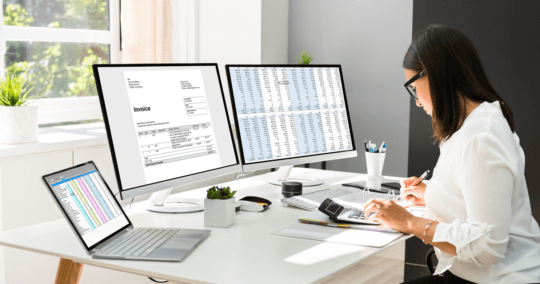E-Invoicing – SEEBURGER Research on the Current Use and Attitudes in Germany

This blog presents the results of the comprehensive SEEBURGER research into current e-invoicing issues. Since 27th November 2020, several companies have been required to send their invoices to public authorities in an electronic format. A survey, which SEEBURGER conducted during their E-invoicing PLUS Autumn series 2020, and answered by representatives of several hundred companies, gives us fascinating insights into the current market situation. The results show a promising spirit of change towards embracing an efficient, legally-compliant e-invoicing solution. Read on to find out more about the current challenges facing the providers as well as a detailled analysis of customers‘ expectations of e-invoicing.
E-Invoicing – highly relevant assessments from industry, associations and administration
From mid-September until the end of November 2020, the successful SEEBURGER e-invoicing webcast series took place for the 11th time. It focused on subjects such as EDI, WebEDI, the German electronic invoice formats XRechnung and ZUGFeRD, and global e-invoicing. For the very first time, we took advantage of these webcasts to survey participants on questions relating to the content of the webcast topics and collate these in a study. This produced a fascinating assessment of how the 400 participants viewed the prospect of switching to e-invoicing and the expectations they had regarding the e-invoicing formats and trasmission methods they would use.
It became very clear that e-invoicing is a hot topic. An increasing number of users are realising the extensive benefits inherent in the structured, electronic processing of invoices and potentially other documents (such as Order-X). According to the study, the majority of companies surveyed had either already implemented e-invoicing, or were planning to do so soon. The respondents are still struggling with getting to grips with the structures surrounding e-invoicing, such as strategy, transmission security and staying up to date with legislation.
Many of these current issues will be addressed in the next e-invoicing series, entitled ʽBest Practiceʼ, in which SEEBURGER will be presenting and answering your questions on the newest SEEBURGER e-invoicing solutions with live demonstrations and examples of where they can be implemented. The spring series of expert presentations from representatives from industry, unions and administration will revolve around trends and validation.
Thank you for your message
We appreciate your interest in SEEBURGER
Get in contact with us:
Please enter details about your project in the message section so we can direct your inquiry to the right consultant.
Written by: Rolf Holicki
Rolf Holicki, Director BU E-Invoicing, SAP&Web Process, is responsible for the SAP/WEB applications and digitization expert. He has more than 25 years of experience in e-invoicing, SAP, Workflow and business process automation. Rolf Holicki has been with SEEBURGER since 2005.





